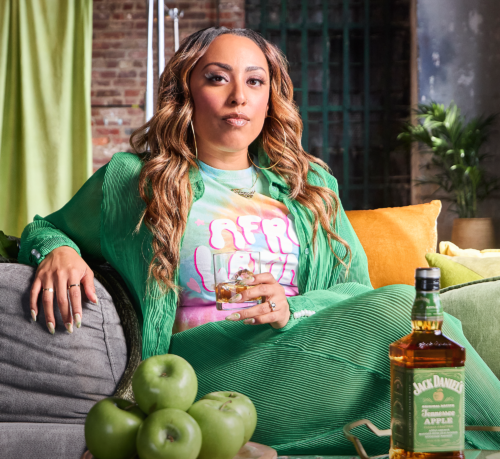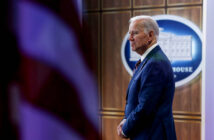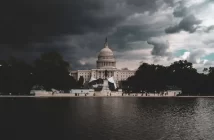There are numerous stories of LGBTQ+ excellence, pride, perseverance and success throughout history, but many of these stories have been presented with little and sometimes even inaccurate information. To combat these, researchers across various backgrounds have come together to work with Wikipedia in making these stories as accurate, plentiful and accessible as possible. The Black EOE Journal sat down with one of these experts, Christina Carney to speak about the importance of telling LGBTQ+ stories:
Black EOE Journal (BEOEJ): What’s your background and what made you interested or excited to take part in this project?
Christina Carney (CC): I am an assistant professor of Black Queer Sexuality Studies at the University of Missouri in Columbia. I received my Ph.D. in Ethnic Studies from the University of California, San Diego and a B.A. in Interdisciplinary Studies at the University of Illinois at Urbana-Champaign. I grew up in a Black working-class neighborhood, Bronzeville, on the South Side of Chicago. Overall, my work examines Black women’s sex work in militarized zones. My book, Disreputable Women: Militarized Deviance and the Black Sexual Economy of San Diego, is currently under review at the University of California Press.
I learned about the Wiki Education project while attending the annual American Studies Association (ASA) conference a while back. I wanted to find new ways to improve my teaching pedagogy and creativity in the classroom. I knew that students were bored with traditional papers and exams as well as in-class group work. After talking to the Wiki Education rep at ASA and reading more information online, I became very excited about not only the fun students would have doing the project, but also the fact that I would be learning new skills as well. Learning with my students has been the best part. At the end of the semester, we all, including myself, present our projects to each other. I presented on a new article I developed, “United States v. Ingalls (1947),” which detailed the first Black women who were able to seek redress for sexual trafficking in the 20th century. I also updated other two articles – “Mann Act” and “White Slavery.” This Wiki project not only assisted students with the opportunity to include Black and Feminist Studies scholarship on Wikipedia, but, at the same time, add reliable information that is accessible to a wider audience!
BEOEJ: What has been your team’s process for curating stories from history that highlight and emphasize the legacy and impact of LGBTQ+ communities?
CC: A first step in curating stories is locating the content gaps in the Black Studies and Women’s Studies literatures. During the first week of the school-year, I assign two important articles on sexuality and intersectionality — Stacey Patton’s “Whose Afraid of Black Sexuality?” in The Chronicle of Higher Education and Kimberle Crenshaw’s “Mapping the Margins:
Intersectionality, Identity Politics and Violence against Women of Color.” In “Who’s Afraid of Black Sexuality?,” Patton gives us a starting point for thinking through how silence about sex and pleasure have left a content gap in Black studies. Black communities have created a culture of dissemblance by which Black sexuality is still considered a taboo topic.
This is not because there is something inherently pathological about Black people’s sexuality, but instead black people choose to remain silent because society continues to weaponize Black sexuality as a way to validate racism and violence. Consequently, these silences often lead to the further marginalization of BIPOC/POC in racial/ethnic groups. In “Mapping the Margins,” Crenshaw explains how people live within multiple identities every day, thereby impacting how much power (or not) they have in society. For example — Black cisgender men disproportionately police violence at alarming rates, the Black queer folx experience violence from members of their own community because of their intersectional identities of sexuality, class, age, etc.
With these frameworks in mind, students then do their own independent research. I allow students to either choose their own topic/page or choose from a list of pages that needs to be updated. For example, one of the student groups updated the page of “William Dorsey Swann (c. 1858 – 1925)” — considered the first recorded drag performer in U.S. history. Most stories about LGBTQ+ pioneers are white, cisgender men with access to certain forms of economic and cultural capital. Unfortunately, queer folx such as Marsha P. Johnson and William Dorsey Swann are often elided in the LGBTQ+ archives. Another group created an entirely new article, “Rogers v. American Airlines (1981).” Rogers v. American Airlines was a 1981 legal case decided by the United States District Court for the Southern District of New York involving plaintiff Renee Rogers, a Black woman who brought charges against her employer, American Airlines, for both sex and race discrimination after she was dissuaded from wearing her hair in cornrows due to the airline’s employee grooming policy. The students not only cited sources detailing the politics of Black hair, but also how Black women are unfairly burdened with the responsibility of looking and dressing appropriately for the ‘Black race.’
BEOEJ: How many (and what type of) individuals, experts and organizations had to collaborate for this project to be successful?
CC: During each semester, our class is assigned two Wiki Education experts that assist students with logistical and technical questions or concerns. I then create a semester-long research plan for students which includes full-length books (non-fiction), peer-reviewed journals, lectures, mixed-media and films. I also partnered with the MU librarian who gave a virtual tour to students explaining the research tools available to them. Wikipedia’s Talk Pages was another resource for students because they were able to chat with other content creators. By the end of the Spring 2022 semester, our class of 31 created one new article, edited 22 articles, added 18,200 words and 195 peer-reviewed references which accumulated over 1.25 million article views.
BEOEJ: What were the biggest takeaways from this Wiki project, especially as they relate to intersectionality? What do you hope the public will do with this information?
CC: My biggest takeaway is the realization that high-impact research and knowledge can be accessible to a wider community — and not just limited to the ‘Ivory Tower.’ This is intersectionality in practice! Students are creating access for those who might not otherwise have
the resources to find reliable information. Student creators become the conduits for linking reliably sourced material to a global audience for free.
BEOEJ: How can LGBTQ+-owned and operated businesses and suppliers use this information to make a difference in their respective industries?
CC: I think it’s important to not just to talk about equality — but also discuss equity. For example, what are we doing in our everyday practice to make sure the most disadvantaged people in our communities and neighborhoods have access to the same information as a college professor or researcher in STEM? I think that is becoming more important every day.



